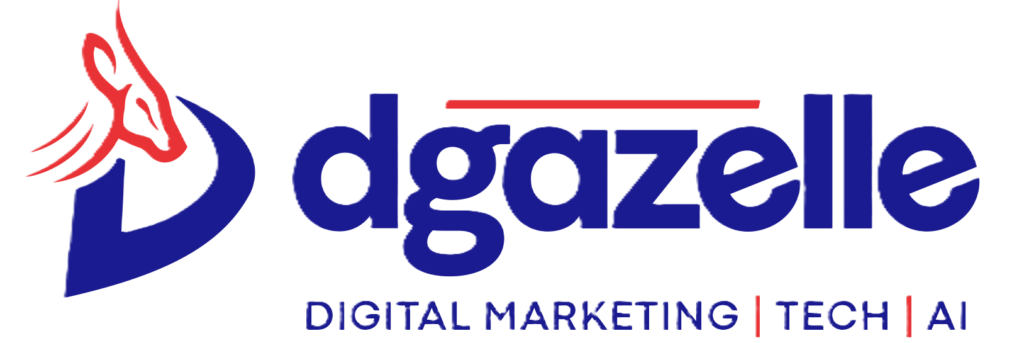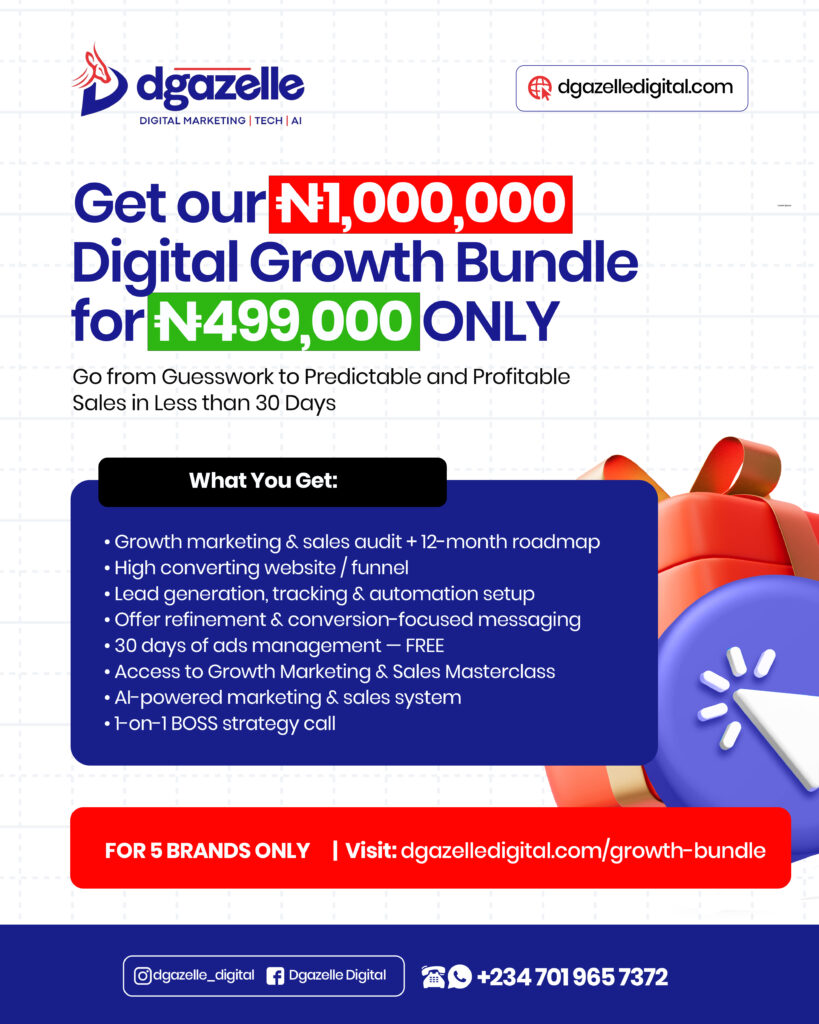Dealing with arrays of problems when running a business is part of the job.
Among other things, you need to engage with your teammates, stay revenue-focused, and come up with new ideas. There are a number of things to think about, but one of the most crucial ones is to make sure you’re working with professionals in digital marketing. However, how can you choose between working as a freelancer and an agency?
Crucial elements include the professionals you select and the manner you manage your business. To accomplish the same task, you can either hire a freelancer or collaborate with a reputable digital agency like Dgazelle Digital. Each has advantages and disadvantages, and in the end, you should choose the one that benefits you and your company the most. To assist you in making the best decision, we have compiled this thorough information.
Why Is The Decision Between Freelancers vs. Agencies Such A Hard Choice?
Because there are simply too many choices. You can find millions of results by just searching for “freelancer” or “agency” on Google. There are far too many to sort.
Employing marketing experts, whether they work for an agency or as independent contractors, won’t be a uniform choice for every company. Among other things, you will need to think about your target market, sales cycle, your particular business niche, and your established brand voice.
The Basics of Freelancer vs. Agency
Before deciding if an agency or freelancer is the greatest fit for your company, let’s clarify what each is.
A freelancer is a self-employed marketing consultant with a clientele who works part-time. They frequently have extensive backgrounds in a range of domains, such as social media, SEO, ad creation, website development, strategy development, design, and content and copywriting.
A digital agency is a bigger group of marketing experts within a more uniform organizational framework. An agency will have a team with a broad range of expertise in several industries and in every aspect of marketing, as these teams frequently comprise professionals with specific skills. To create thorough strategy plans or work on particular client tasks, the firm makes use of the experience of its staff.
It won’t be easy to decide between an agency and a freelancer because different businesses will have different needs. Both will actively market their features and advantages in an effort to get your attention. To make an informed choice, you must weigh various factors before selecting the best one for your company.
Knowledge and Experience
Agency
Advantages: Hiring a digital agency will provide you with a group of seasoned professionals with a broad range of experience. They will all understand what works best for your company, so you won’t need to explain your idea to them.
Disadvantage: You might not be able to choose your coworkers. A personnel from the digital agency’s roster will be assigned to your business.
Freelancer
Advantage: Choose a freelancer who is excellent at fulfilling your particular needs. You can get assistance from generalists or freelancers with specialized knowledge.
Disadvantage: It will be challenging to find a single person with the variety of abilities you require, and you will probably need to hire multiple freelancers. Working together with several independent contractors might take a lot of time and
Services
Agency
Advantages of working with a digital agency include regular review meetings to gauge progress and your level of satisfaction with their work, as well as a contact and support system to make sure your needs are being met. Generally speaking, agencies have clear procedures for accomplishing objectives and completing tasks.
Disadvantage: Depending on their pay, an agency may have certain guidelines for the quality of services they must offer. This can make it challenging to add significant last-minute initiatives to the pipeline or to swiftly change course when necessary.
Freelancer
Advantage: Since freelancers work for themselves, their reputation is very important to their success. They will most likely provide exceptional help and ensure that the requirements you set are fulfilled. Since the freelancer wants you to recommend them to other business owners, it is in their best interest to aim for success.
Disadvantage: Freelancers are known to occasionally be hard to get in touch with and to abruptly stop working. Additionally, a lot of independent contractors insist on not working under contracts, which could put you in a tight spot if they fail to do the work they promised.
Prioritization
Agency
Advantage: Agencies can devote more resources to programs that are of utmost importance. They can handle a greater number of more challenging jobs because they have more employees and committed experts.
Disadvantage: Setting priorities for work frequently has a price, and bigger, more lucrative clients will be given priority.
Freelancer
Advantage: Freelancers can dedicate more time to your projects because they usually have less assignments than a larger organization. They might decline other clients in order to concentrate on your job if the project is big enough.
Disadvantage: One person may take longer to finish tasks due to a lack of resources. When freelancers take on more clients and tasks than they can efficiently finish, they run the risk of taking on more than they can handle.
Flexibility and Quickness
Agency
Advantage: You will have greater clarity about the task that an agency performs thanks to their clearly defined partnership structure, and you can dependably plan your business around their capacity to produce thanks to the distribution of hours and resources.
Disadvantage: Unexpected projects or problems may interfere with planned schedules, and the agency’s availability may be restricted to regular business hours due to the same structure.
Freelancer
Advantage: Since freelancers are more adaptable and can take on urgent projects with little notice or outside of typical working hours, they frequently choose this type of work over traditional business hours.
Disadvantage: They frequently charge more for work done on the weekends or in the evenings. Due of their unconventional work patterns, it may also be challenging to set up meetings or get prompt answers to inquiries.
Cost
Agency
Advantages: The majority of companies offer well-organized plans that specify exactly what you get for the money you spend. You can rely on the caliber of the work you get because you’re paying for highly skilled professional services. Payment terms are also well-defined and frequently adjustable based on your business requirements.
Disadvantages The client will pay more because of an agency’s overhead expenses.
Freelancer
Advantages: Since there is no overhead, independent contractors can charge less and offer their services at competitive prices to draw in more business.
Disadvantage: Lower prices are frequently associated with a smaller skill set, so you’ll need to hire several independent contractors to meet all of your project’s needs. This can easily become costly.
Taking the Right Course of Action
To choose the best choice for your needs, weigh the following factors when deciding between agencies and freelancers for your company:
The Appropriate Experience
Any marketing partner will face unique hurdles according to your sector or business expertise. Verify whether the agency or freelancer has prior experience working with comparable brands or has experience in that field. When there are alternative options accessible, it might not be worth the time and effort to educate them about your specialty if they have no idea what it is.
Demonstrated Performance
Anyone can make lofty claims and promises, but can they provide evidence to support them? Request case studies, performance reviews, or endorsements from previous customers to demonstrate their ability to fulfill commitments and provide tangible outcomes for your company.
Social Evidence
As with performance, it’s crucial to read actual client testimonials that may give you a sense of what to anticipate from your working relationship with an agency and illustrate what it’s like to work with them as opposed to independent contractors. Verify the authenticity of the evaluations, endorsements, or recommendations, and don’t be scared to get in touch with the people to get their word. The path you take to reach your goals may be just as significant as the final product.
When to Decide
You may have been able to manage digital marketing on your own when your company was first getting started. Anyone who has the time and energy to learn how to do small-scale digital marketing can now do so thanks to today’s technologies and platforms. It’s time to abandon the do-it-yourself mentality and hire experts to manage the always evolving field of digital marketing, though, as your company expands and the amount and complexity of the jobs you must perform increase along with it.
It’s best to make a decision about where to find further expert assistance before you become overwhelmed and desperate. Selecting between an agency and working as a freelancer is a crucial choice that, if done correctly, can ease your difficulties or, if done incorrectly, can make them worse.
Make sure you have the time and energy to devote to selecting the best alternative so that you can proceed with confidence that your choice will have the biggest and most lasting effect on your company.
Conclusion
In the end, your unique goals and project specifications will determine whether you choose a web design business or freelancers. Every choice has particular benefits and possible disadvantages.
Web design agencies are perfect for bigger, more complicated projects since they offer a wide range of resources, experience, and an organized methodology.
They provide a whole range of services that are scalable and accountable. On the other hand, freelancers offer flexibility, specific talents, and cost-effectiveness, making them ideal for smaller or specialized tasks.
Whether you’re leaning towards an agency for its comprehensive services or a freelancer for their specialized skills, we are here to help.







